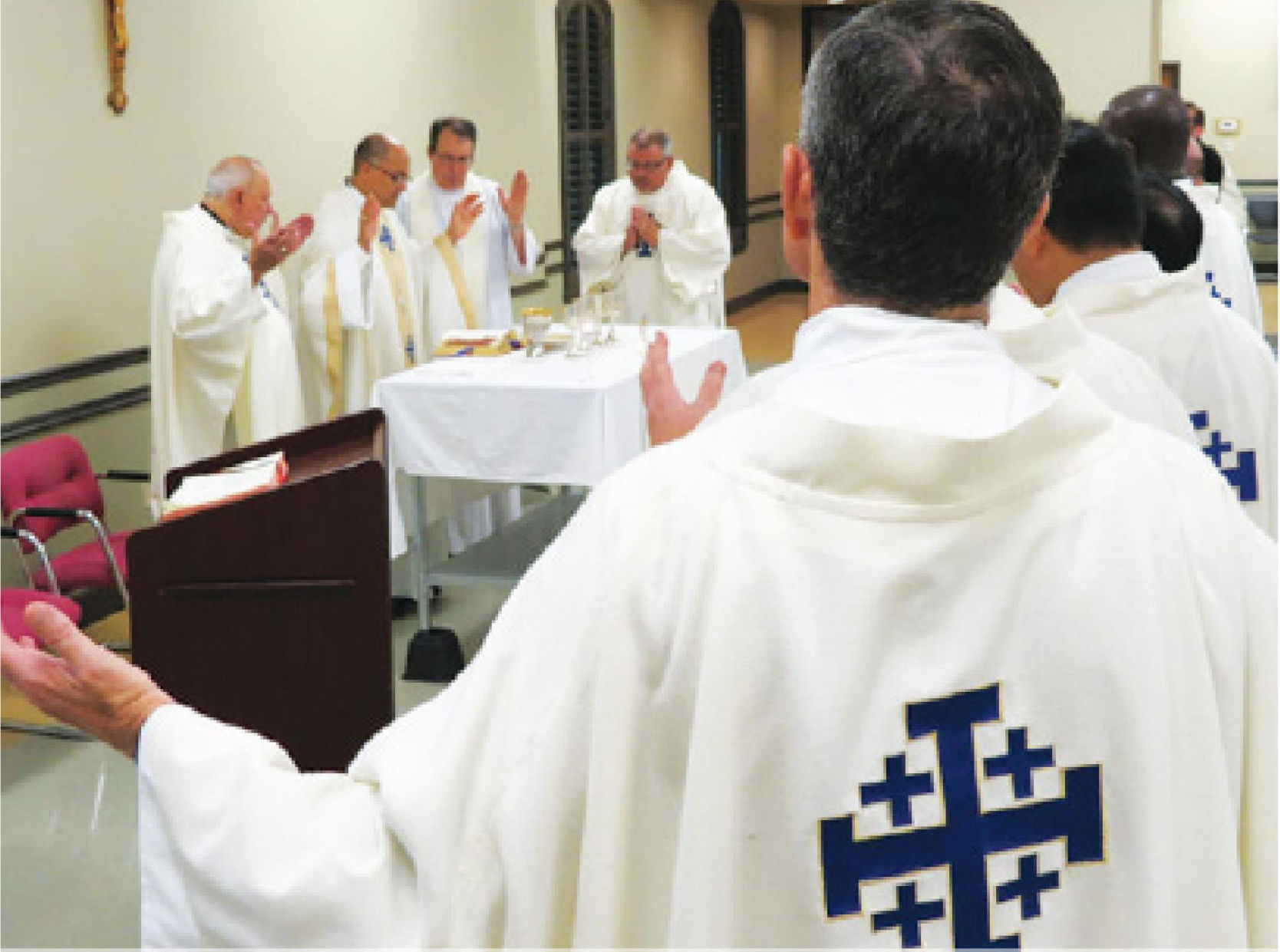
How to Turn Your Side Hustle Into A Business
August 16, 2018
Una Vanacor
August 16, 2018The Diocese of Houma-Thibodaux’s spiritual shepherd has taken the unusual step of proactively addressing concerns about abuse of children and adults by clergy and other church leaders, in a statement released last week.
Advocates for survivors of abuse say that’s a good thing. But they also question how statements praising transparency and investigations when warranted will translate into action.
The Most Rev. Shelton Fabre, Bishop of the Houma Thibodaux, said his words were written because of concerns raised by recent developments at the Vatican relating to allegations of sexual abuse in the U.S. and elsewhere.
The Diocese of Houma-Thibodaux has no known abuse
cases pending, although some have arisen in the past, in one instance resulting in a 1996 criminal conviction and life sentence for a priest, Robert Melancon. A civil suit against the diocese was settled, as was an action brought in connection with allegations against Etienne LeBlanc in 2012. LeBlanc’s case did not result in criminal charges, although a complaint was made to Morgan City police. A former bishop, Sam Jacobs, was a defendant in a suit brought in connection with alleged failure to protect a teen who was allegedly victimized by a priest in the Alexandria area, although not accused of any abuse himself.
The timing of Bishop Fabre’s statement, interviews with church officials confirm, is more directly related to situations that have occurred in other places, but which have high public profiles. It was released prior to Monday’s news from Pennsylvania, where a grand jury reported was released stating more than 300 priests in six dioceses within the state were protected by church officials. The report says that more than 1,000 children were victimized based on church records.
Last month Pope Francis accepted the resignation of Theodore McCarrick, former Archbishop of Washington D.C., in the wake of sexual abuse allegations. The Pope is also dealing with a widely publicized abuse scandal in Chile. In his statement, Bishop Fabre expresses support for actions Pope Francis has taken.
“Recent events regarding the response of leaders in the Church to situations and allegations of sexual abuse and harassment of minors and adults by clergy have again caused great anguish, concern, anger and confusion amongst the faithful,” Bishop Fabre’s statement reads. “For many, these events have reopened old wounds, and broken hearts anew. I count myself among those who have dealt with such feelings over these past few weeks. Careful investigation, response and resolution are necessary. I am grateful for the most recent action of Pope Francis with regard to these matters. However, even with these actions, I realize that nothing can fully alleviate the pain of those who have suffered sexual abuse at the hands of those who lead or minister in the Church.”
Read the Bishop’s complete statement online at Houma-Times.com
The bishop also expressed support for fellow church leaders “who have already stressed the need to do more to protect the people of God.”
The letter suggests that steps toward greater protection will be a topic of discussion when American bishops meet as a body in November.
“As bishops, we must respond with compassion and justice to anyone who has been sexually abused or harassed by anyone who ministers in the Church,” Bishop Fabre wrote. “I urge anyone who has experienced such abuse by anyone in the church to come forward.”
That invitation, church leaders said, is not in itself new. Mentions that victims should notify someone in the church are not uncommon in newsletters and in other communications between the diocese and the faithful. But to appear in an unsolicited statement, particularly as regards actions taken by the Vatican, grows out of an honest desire on the part of the Bishop to deal appropriately with problems should they arise, and to address past shortcomings of the Church.
Victims of abuse and their advocates generally accepted the statement as an indication of some progress in terms of ecclesiastic acknowledgement, but also said that words are cheaper than actions, and aware awaiting what policies may develop as bishops continue to address the problem.
“This is a very nice statement by Bishop Fabre of spiritual goals for the Roman Catholic Church,” Stetter said. “I will be pleased to see when they put meat on the bones. Where is the beef?”
Most recently, Stetter was involved with a settlement arising from allegations that a former deacon raped an altar boy repeatedly in the Archdiocese of New Orleans, beginning in 1979. The former deacon, George Brignac, was removed from ministry two decades ago, but continued to be involved with the Catholic Church.
Survivors of abuse interviewed by The Times expressed similar sentiments.
Steps taken by the Catholic Church in the past, including development of a Charter for the Protection of Children and Young People, have over the years won alternating praise and criticism.
Objective evaluation of any steps the Church takes appears especially difficult for victims of crimes committed long ago, who recall not only the abuse but a church hierarchy slow to respond, and in some cases inflicting further wounds.
Among the criticisms of current church policy is the experience with panels that hear complaints against clerics and others within the church. Victims and their advocates say that without public accountability, true justice is not likely to occur and that youngsters will still be at risk. Some expressed hope that greater accountability will emerge from the upcoming general assembly of bishops. A few said they hope changes in the future will aid the church in winning back the faith of some who have fallen away because of disenchantment with its policies and what they regard as “clericalism” that prevents meaningful reform.
Bishop Fabre’s statement appeared to touch on concerns for change, requesting prayers for himself and other bishops as they work toward “a further resolution to this painful and ugly chapter in the history of the Church.”
“I hope that your prayers, my prayers, and the actions of the bishops will bear fruit in ushering in a future in the Church that is free from such moral failures,” Bishop Fabre wrote. “But even more importantly, a powerful conversion and reconciliation amongst all of God’s people.”
Bishop Fabre, of the Diocese of Houma –Thibodaux issued a statement this week, condemning the abuse of children and other members of the clergy, Read that fall statement online at HoumaTimes.com.










